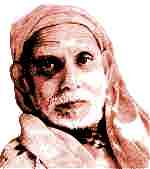|
 Introduction
Introduction
1.Karamaanushthana
The entire course of a Hindu's spiritual life has been succinctly
stated in the Pentad of Instruction known as the Upadesa Panchaka
of Sri Sankara. It
is a cardinal tenet of our faith that the present life of any man should be the last in
the succession of infinite lives that he has had in the history of his soul.
The soul by itself is incorporeal; its association with the
body is due to the operation of avidya, or nescience which itself is beginning less. The
present life of every man is a glorious opportunity to be used in such a manner that
there will be no more lives hereafter. The death that will come inevitably at the end of
this life must be the last, and the soul surviving that should not thereafter enter into
another body by the operation of the Law of Karma.
Since residual karma brings the soul in conjunction with
the body, all karma should be liquidated, burnt out, with the body of the present life. It
is to this end that every man must strive. For this purpose, says
Sankara, following the Vedas every one must go through certain
disciplines. They refer to work, worship and wisdom, Karma,
Bhakti and Jnaana. All spirituality must be firmly established on a
high moral code, which involves the doing of what is prescribed and the
avoidance of what is prohibited. Frequently in the context of our daily
life, we have to determine the nature of our duties.
Kumarila Bhatta, the great Meemaamsaka posed the question:
What is Dharma" What is its ground? Ordinarily have say that the Laws of a
State determine our duties. These laws are the enactments of a legislature, which is
a part of our Constitution. Who gave the authority to this Constitution? It
was drawn up by the representatives elected by the people.
Author - Sri Chandrasekharendra Saraswati
|